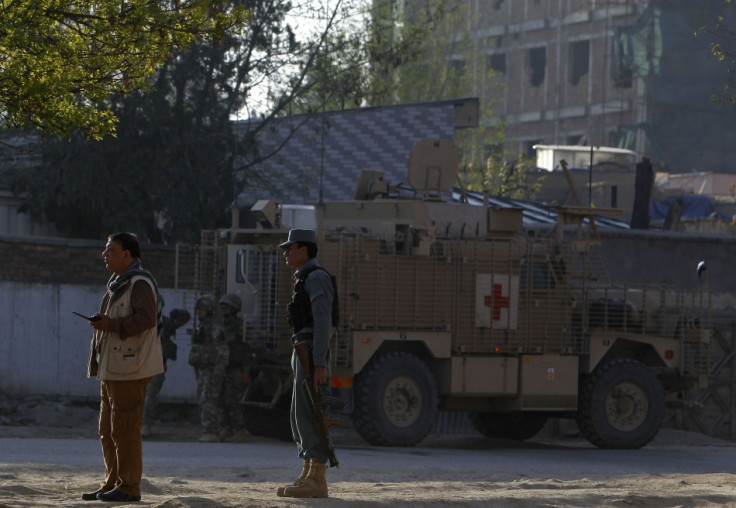Ten tonnes of Explosives Seized in Afghanistan Capital

Afghan security officials have seized 10 tonnes of explosive materials in Afghanistan's capital Kabul and prevented a potential disaster.
"If this amount of explosives had been used, it could have caused large-scale bloodshed," said Shafiqullah Tahiri, National Directorate of Security's spokesperson in a press conference on Saturday, according to the Associated Press.
"Imagine if 10,000 kilograms of explosives, which were already inside Kabul had gone off, what a disaster it could have been," Tahiri said.
Five men were also arrested in connection with the explosives which they were planning to use in crowded areas, according to security officials. Out of them, three are said to be Pakistani citizens and two are from Afghanistan. The two Pakistanis reportedly belong to Pakistan's intelligence agency and one of the Afghans is reportedly close to the Taliban. A video was also seized which details the group's plans.
The operation was kept under wraps due to its sensitive nature, added Tahiri. He did not disclose when the operation took place.
Intelligence officials seized a truck carrying 10,000 kg explosives stuffed in 400 bags which were hidden under a pile of potatoes.
The Afghan government has been constantly accusing Pakistan's ISI of having links with anti-Afghan insurgents but the Pakistani government denies it.
Reports also suggest the explosives belong to the Haqqani network. The extremists were reportedly planning to assassinate Afghanistan's Vice-President Mohammed Khalil apart from launching a massive attack in a crowded place with the materials.
Officials said the arrested men confessed that the explosives were loaded from the Pakistani city Peshawar.
The explosives seizure comes against the background of last week's coordinated attacks at some key locations including the Nato headquarters and foreign embassies in Kabul. More than 50 people died in that attack.
Afghan and US officials pointed their fingers at the Haqqani network for the attacks.
© Copyright IBTimes 2025. All rights reserved.






















